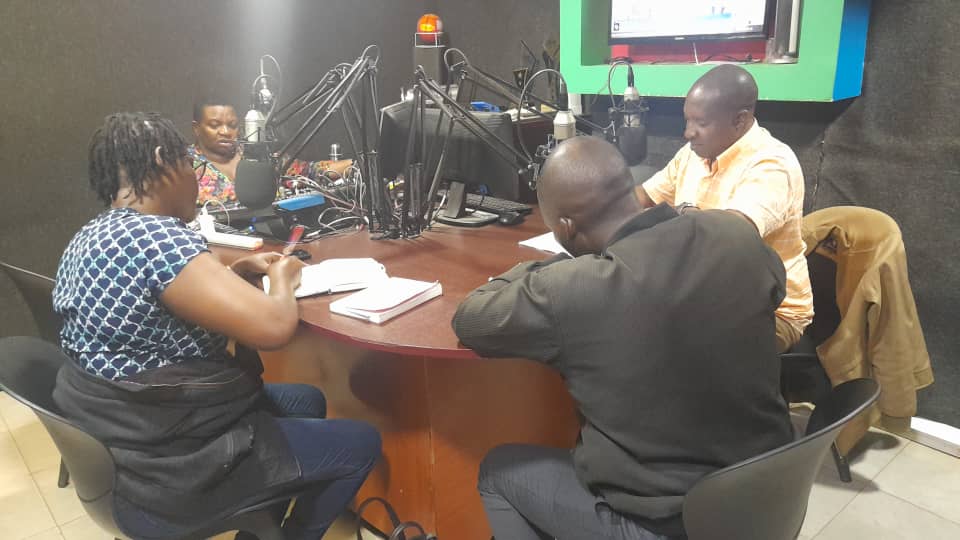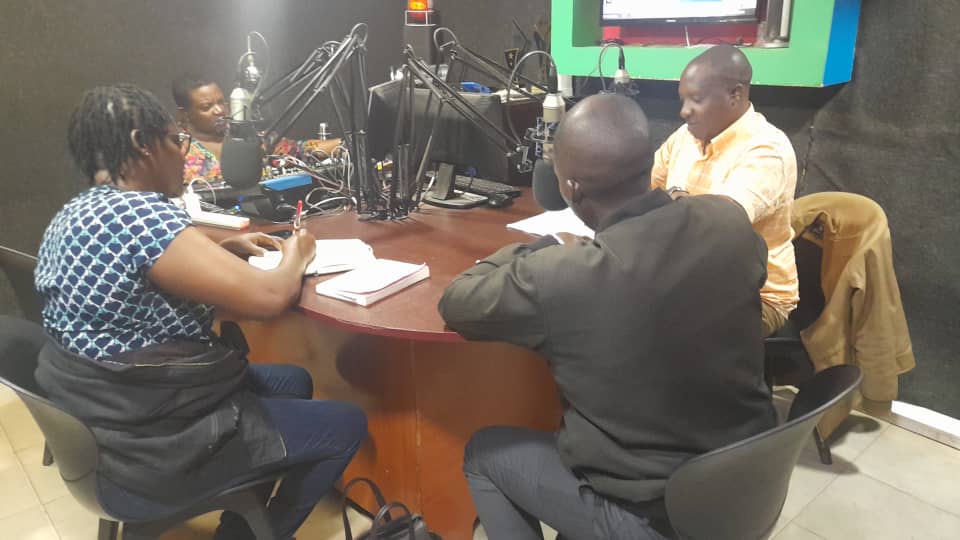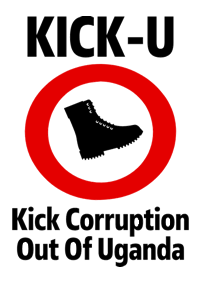
In a bid to foster transparency and accountability in Uganda's electoral processes, Kick Corruption out of Uganda (KICK-U) spearheaded a ground-breaking road talk show on constitutional and political reforms. Held on Thursday 8th of February, 2023, the event took place on the airwaves of Voice of Kigezi FM Radio in Kabale District, broadcasting from 9:00 PM to 10:00 PM. This initiative falls under the SCENE Project, a collaborative effort between KICK-U and the Uganda National NGO Forum.
The talk show, hosted by the esteemed Madam Prossy Nyitera, brought together a panel of distinguished individuals deeply involved in the electoral landscape. Among the discussants were Niwamanya Ronald, Assistant District Election Administrator of Kabale District; Evelyn Arinaitwe, a human rights officer specializing in education; Kakuru Robert Byamugisha, the Executive Director of KICK-U, and Nabaasa Barnabas, the SCENE Project Focal Person.
Mr. Kakuru Robert Byamugisha, the Executive Director of KICK-U, took the opportunity to outline the core mission of KICK-U. He emphasized the organization's dedication to ensuring the integrity of leadership and empowering individuals with knowledge of their rights. Byamugisha underscored KICK-U's collaborative efforts with allied groups such as the Uganda National NGO Forum to advance this agenda. "We are convened here to deliberate on strategies for enhancing the electoral process," Byamugisha asserted. "This broadcast marks merely the inception of our broader mission. Our aim is to educate the general public on their rights and foster accountability among leaders."

The discussion delved into critical aspects of electoral processes, with a focus on the electoral roadmap outlined by Mr. Ronald from the Electoral Commission (EC). He elucidated on the electoral timeline, emphasizing key milestones such as the display of the national voters register and the nomination of special interest groups. Mr. Ronald underscored the importance of stakeholder engagement in ensuring democratic and transparent elections, highlighting the roles of various entities, including the government, parliament, and law enforcement agencies like the police.
During the interactive session, callers raised pertinent issues plaguing the electoral system, including the missing National IDs, irregularities in local council elections, and instances of voter suppression such as pre-ticked ballots and vote rigging.
In response to these challenges, the panellists proposed a series of electoral reforms aimed at addressing systemic gaps and ensuring the integrity of the electoral process. Key recommendations included enhanced collaboration among stakeholders, robust civic education initiatives, and the deployment of election observers to safeguard against malpractices.
Evelyn Arinaitwe from the Human Rights Commission emphasized the fundamental rights enshrined in the constitution, particularly the right to vote and participate in the electoral process. She highlighted the commission's role in promoting civic awareness and ensuring the protection of citizens' rights during elections. Moreover, she underscored the importance of citizens reporting any electoral irregularities to the commission's toll-free line, facilitating timely intervention and resolution of issues.
The Radio talk show concluded on a hopeful note, with a collective commitment to championing electoral reforms and fostering a culture of transparency, accountability, and inclusivity in Uganda's democratic processes. As the nation looks ahead to future elections, initiatives like these serve as beacons of hope, guiding the way towards a brighter, more democratic future.
